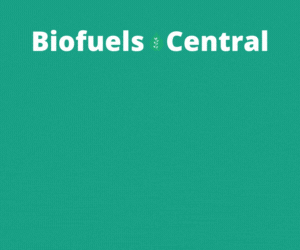German biodiesel exports hit record level – UFOP: GHG quota policy and competition for greenhouse gas efficiency are driving foreign trade in biofuels.
In 2023, Germany shipped around 2.9 million tonnes of biodiesel abroad, the largest quantity ever. Imports amounted to 1.6 million tonnes, falling 6.2 per cent short of the previous year’s volume. The figure does not include imports of HVO, as this is exclusively produced outside of Germany. In 2022, HVO imports totalled approximately 0.48 million tonnes.
The Netherlands, with Rotterdam being the most important hub for world trade in biofuels, remained by far the most important trading partner for biodiesel. In 2023, exports rose 3.6 per cent year-on-year to approximately 1.2 million tonnes. Trade to the US and Poland also increased. Exports to the US saw a 55 per cent climb to 444,100 tonnes, making the US the second most important destination. By contrast, deliveries to Belgium plummeted around 40 per cent to 381,800 tonnes. Total German biodiesel exports reached a new record level at 2.9 million tonnes, with output amounting to approximately 3.9 million tonnes.
According to investigations conducted by Agrarmarkt Informations-Gesellschaft (mbH), biodiesel imports to Germany in the year 2023 had a volume of 1.6 million tonnes, which was down 6.2 per cent on 2022. The largest tonnages came from the Netherlands, Belgium, Malaysia, and Austria. The decline in imports from Belgium was particularly noticeable. At 295,500 tonnes, the volume shipped to the German market was just less than 23 per cent down on the previous year. By contrast, imports from Malaysia went up around 6.6 per cent. Biodiesel imports of several 100,000 tonnes from China, which imports are suspected of being fraudulent, were obviously imported via Rotterdam, because China is not listed in the import statistics.
🔥 What about we co-host a webinar? Let's educate, captivate, and convert the biofuels economy!
Biofuels Central is the global go-to online magazine for the biofuel market, we can help you host impactful webinars that become a global reference on your topic and are an evergreen source of leads. Click here to request more details
According to the Union zur Förderung von Oel- und Proteinpflanzen e.V. (UFOP), the German GHG quota policy and competition for GHG efficiency are the key drivers of this strong trade in the commodity. This is a desired effect of the resources and environmental policies, and it is confirmed by the Evaluation and Progress Report by the German Federal Office for Agriculture and Food (BLE). In 2022, biodiesel (including HVO) from waste oils and fats, at approximately 1.57 million tonnes, accounted for approximately 60 per cent of total consumption of circa 2.54 million tonnes. The association assumes that consumption in 2023 amounted to 2.62 million tonnes, with a similar share of waste-based biofuels (biodiesel and HVO).
The UFOP has noted that with exports amounting to more than 1.28 million tonnes, a sizeable potential of biodiesel that could have been used for crediting towards the national greenhouse gas quota obligation and consequently for meeting the GHG target for the transport sector was in fact exported. Such potential should be exploited in the future, especially because investments in biodiesel or HVO production facilities are currently not to be expected in Germany. The UFOP holds that promoting synthetic renewable fuels and hydrogen is basically the right thing to do in the long term but does not help with the targets to be met by 2030 and 2040, especially because there are two other recipients that also need to be served: shipping and especially aviation.
READ the latest news shaping the biofuels market at Biofuels Central
German biodiesel exports hit record level – UFOP: GHG quota policy and competition for greenhouse gas efficiency are driving foreign trade in biofuels. source








